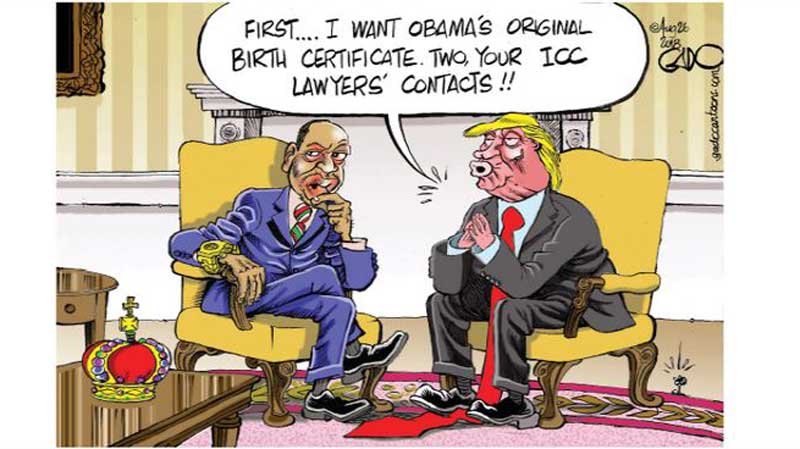×
The Standard e-Paper
Fearless, Trusted News

Kenya and the United States, led by Uhuru Kenyatta and Donald Trump, have experienced mutual attraction and repulsion. They share such national characteristics as having fought the British to gain independence and initially relying on George Washington and Jomo Kenyatta as father figures. Their citizens occasionally exhibit pride that borders on arrogance.